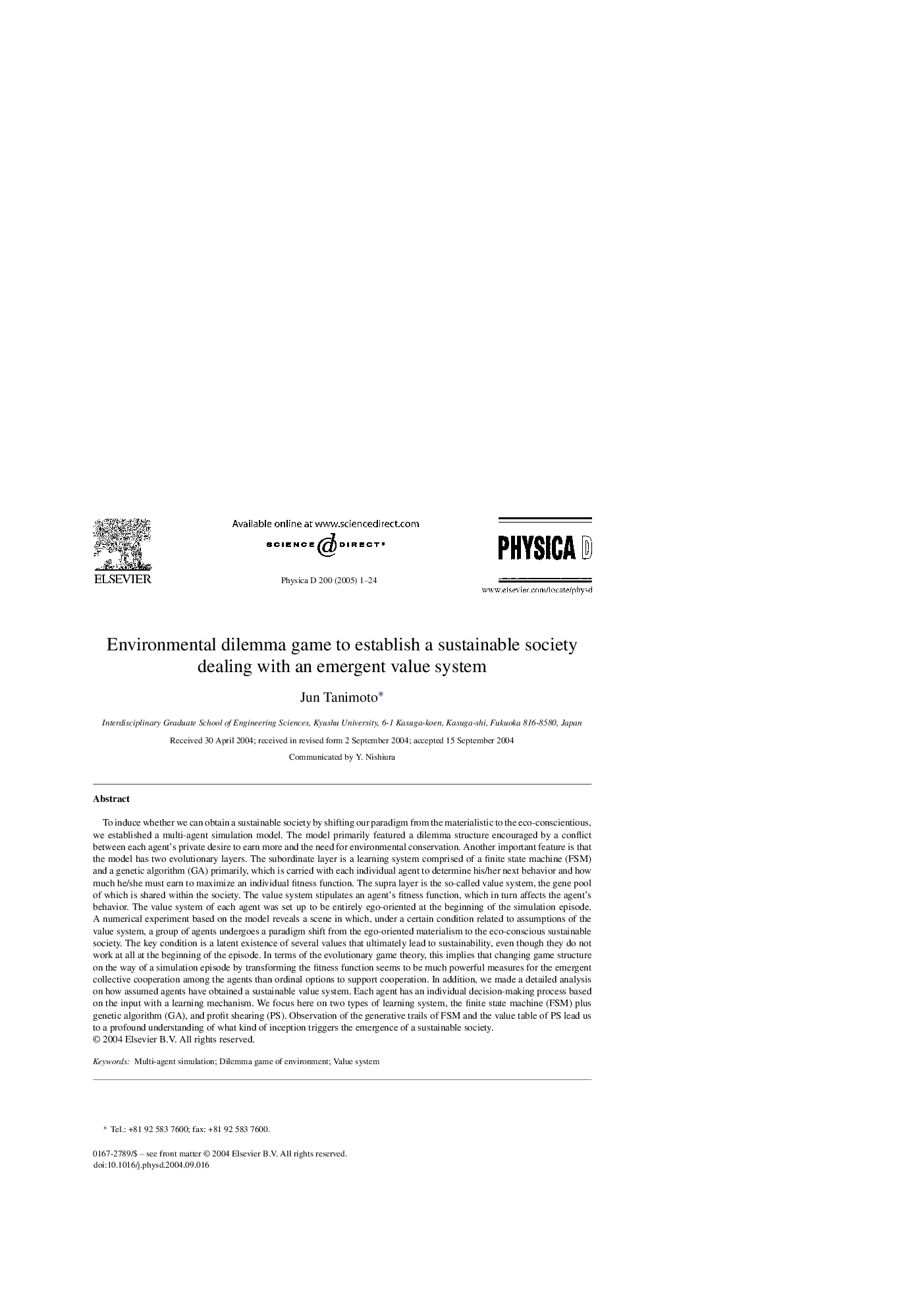| Article ID | Journal | Published Year | Pages | File Type |
|---|---|---|---|---|
| 9877752 | Physica D: Nonlinear Phenomena | 2005 | 24 Pages |
Abstract
To induce whether we can obtain a sustainable society by shifting our paradigm from the materialistic to the eco-conscientious, we established a multi-agent simulation model. The model primarily featured a dilemma structure encouraged by a conflict between each agent's private desire to earn more and the need for environmental conservation. Another important feature is that the model has two evolutionary layers. The subordinate layer is a learning system comprised of a finite state machine (FSM) and a genetic algorithm (GA) primarily, which is carried with each individual agent to determine his/her next behavior and how much he/she must earn to maximize an individual fitness function. The supra layer is the so-called value system, the gene pool of which is shared within the society. The value system stipulates an agent's fitness function, which in turn affects the agent's behavior. The value system of each agent was set up to be entirely ego-oriented at the beginning of the simulation episode. A numerical experiment based on the model reveals a scene in which, under a certain condition related to assumptions of the value system, a group of agents undergoes a paradigm shift from the ego-oriented materialism to the eco-conscious sustainable society. The key condition is a latent existence of several values that ultimately lead to sustainability, even though they do not work at all at the beginning of the episode. In terms of the evolutionary game theory, this implies that changing game structure on the way of a simulation episode by transforming the fitness function seems to be much powerful measures for the emergent collective cooperation among the agents than ordinal options to support cooperation. In addition, we made a detailed analysis on how assumed agents have obtained a sustainable value system. Each agent has an individual decision-making process based on the input with a learning mechanism. We focus here on two types of learning system, the finite state machine (FSM) plus genetic algorithm (GA), and profit shearing (PS). Observation of the generative trails of FSM and the value table of PS lead us to a profound understanding of what kind of inception triggers the emergence of a sustainable society.
Keywords
Related Topics
Physical Sciences and Engineering
Mathematics
Applied Mathematics
Authors
Jun Tanimoto,
